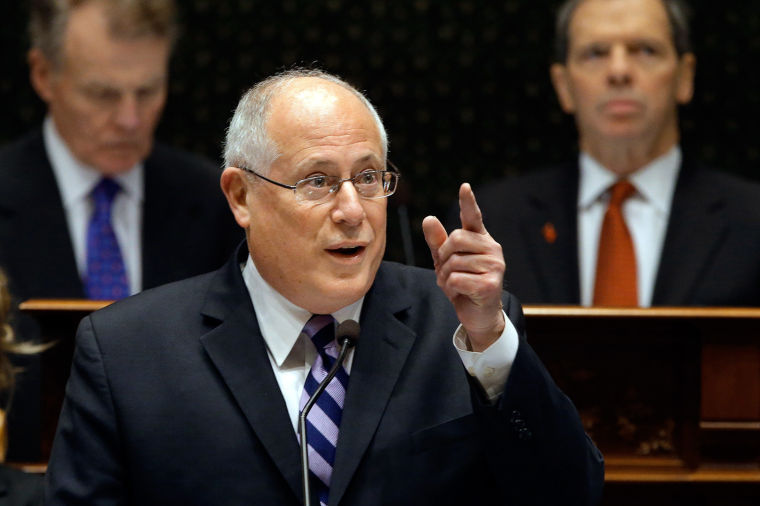Gov. race worth your time
Illinois Gov. Pat Quinn delivers the State of the State address to a joint session of the General Assembly in the House chambers at the Illinois State Capitol Wednesday in Springfield
March 26, 2014
Come November, Illinois will decide if Gov. Pat Quinn will stay in office or if the torch will pass to Republican businessman Bruce Rauner.
Whatever your political affiliation, the opportunity to vote is a right many in the world do not possess and not enough in this nation appreciate.
So rather than make excuses in November as to why you didn’t go to the polling place and cast a vote, take a few moments, pull out your smartphone and look up the candidates.
When we live in a world where I can open up an app on my phone and find out who are the extras in a substandard movie in a manner of moments, not being informed about the people running for public office is inexcusable.
Rauner, a new face on the ballots this year, seeks to end the streak of Democratic governors in Springfield and take on the challenges of fixing Illinois’ many economic issues.
Matthew Streb, chair of the Political Science Department, predicts the governor race will focus on a few key areas, namely the tension between labor and business interests, the state budget, job creation and pension reform.
“Job creation and plans for lowering the unemployment rate will be the major theme,” Streb said.
Streb said jobs are a priority in most elections in the current political climate — which is no surprise, since Illinois has an unemployment rate (8.7 percent) that is a full 2 percent higher than the national average (6.6 percent).
Creating jobs is the most important objective the governor will take on, regardless of who is in the office.
Students going into a workforce where almost one out of every 10 people doesn’t have a job isn’t what anyone would want after taking out loans to finance his or her education.
“Commitment to higher education is something that impacts students directly,” said political science professor Scot Schraufnagel. “Which candidate will focus on the state university systems that are shrinking in faculty and size?”
The only way to determine that is to find out more about the candidates. It’s not difficult to look to their campaign websites for information.
Stark differences between the candidates will make the decision for most voters, but those who are split on the issues should inform themselves as best they can over the next eight months.
If these issues are not in the front and center of your mind at the moment, don’t worry, you will be hearing about them very soon.
“It’s going to be an expensive race with a lot of money spent on advertisements,” Streb said.
Rauner donated $6 million of his own money to his primary campaign to defeat the other republican challengers, and Quinn launched a negative ad campaign against Rauner before the primary results were even confirmed, according to a March 4, Chicago Tribune article.
“[The advertising] presents lots of opportunities for young voters to be informed,” Streb said.
Though the opportunities to be informed may be many, the value of the information can be debated.
People should demand clear answers and detailed plans of their politicians and not accept the slew of negative ads that have already started — and will continue — until election.



